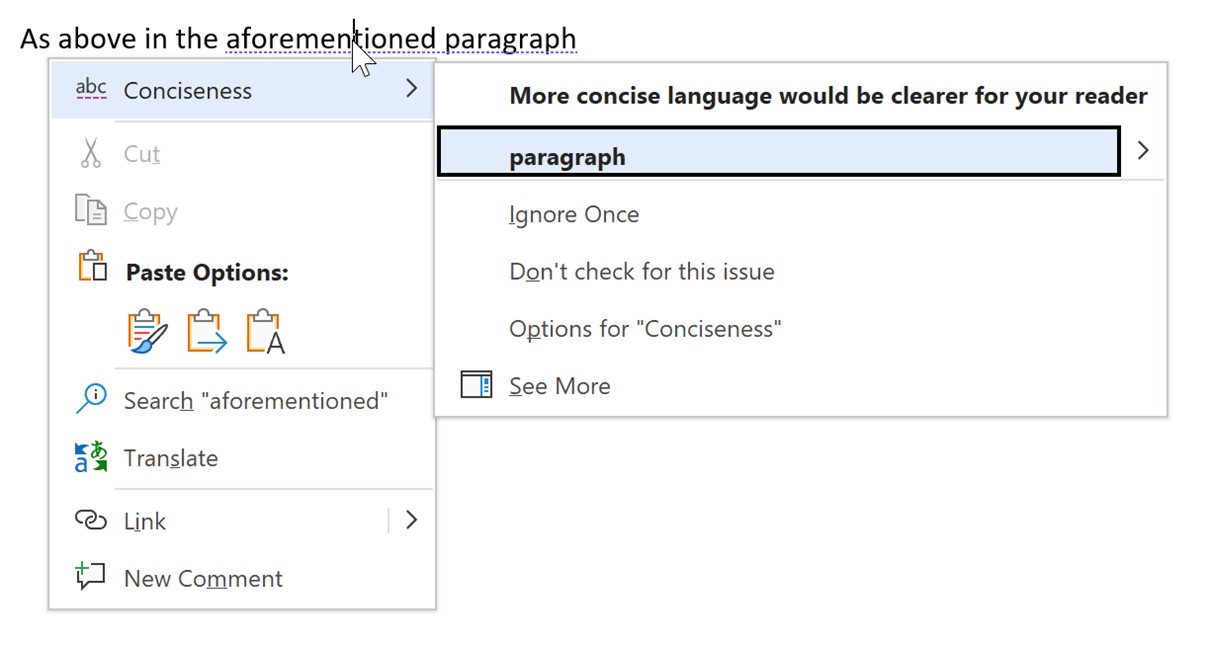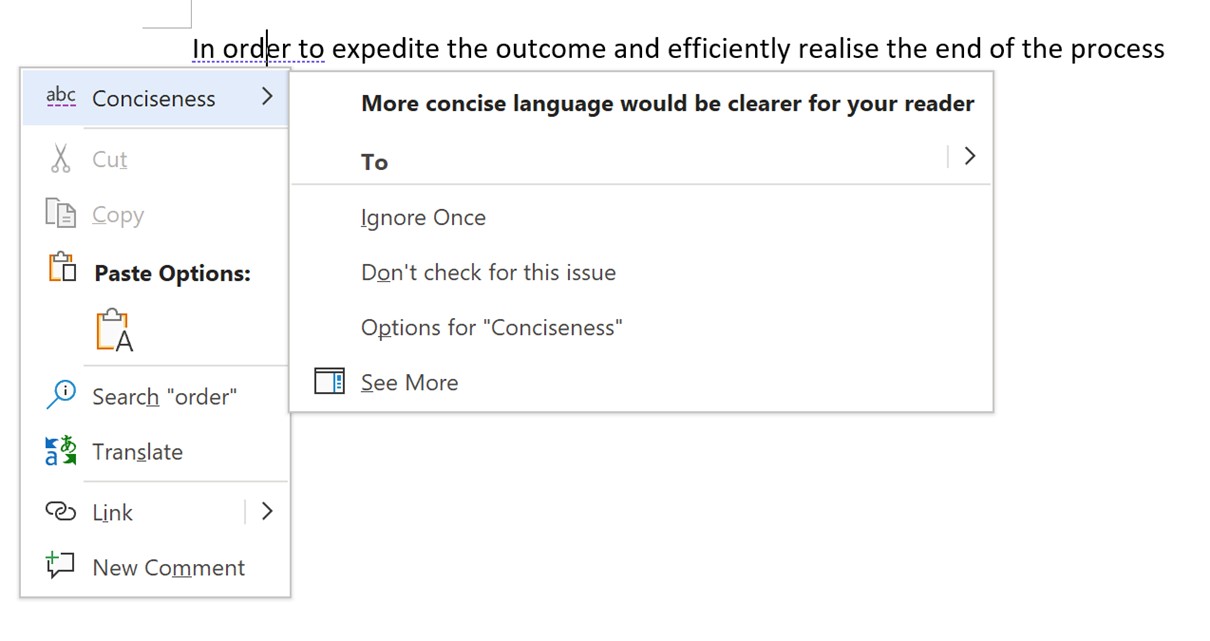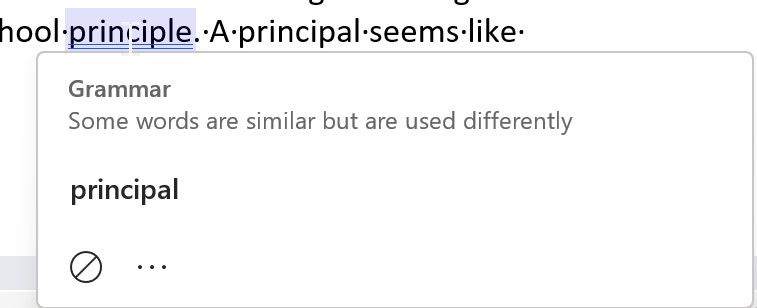With Modern Word Processing there is no excuse for poor grammar (or wordy responses)
The irony of writing a piece on word processing skills and selection criteria, when selection criteria are by nature always wordy and hard to understand, is not lost on me.
I covered in a recent blog one of the OpenAI/ChatGPT tools summarize for a 2nd grader which I recommend as a fantastic way to translate the wordy selection criteria into something you can understand and give an example of.
With the elephant in the room acknowledged, the readability of your answer is important. There is no better selection criteria response for good written communication skills than a well written response. It is arguable that there should never be a selection criterion for good written communication in a written document. Moving on though.
Why Is a Good Written Response Important?
There are a lot of factors that make a good written response important including:
- Word and page limits,
- Communicating your message and skills,
- Answering the question not telling an irrelevant story,
Why are communicating your skills and answering the question important to written communication, not just the selection criteria process? It’s because that is what written communication is about at the end of the day. It’s not about the documents you’ve written. If you have written a 60,000 – 80,000 word PhD thesis, that’s great. If your written communication is demonstrated in taking notes in a medical setting so other staff know what you’ve done after you’ve left for the day, that’s equally important. If your written communication is file making in a office setting that’s an equally good example.
Elements of Effective Written Communication
The elements of effective written communication (not long documents or manuals etc) include:
- Connection,
- Clarity and Conciseness,
- Correctness,
- Clearly define your goal,
- Use plain English,
- Keep it short and to the point, and,
- Use active voice.
There will be other definitions on Google so feel free to have a browse but that a list I like and as a panel member what I would be looking for.
If you can display those elements in the documents you write, then use those as your example. The focus is as always your example, not the nature of what you’re writing.
Learn in Detail How to write a selection criteria response
Click below to view our online courses that don't just teach about word processing. Learn about:
- How to understand the position
- How to decode what the criteria are asking you to show
- How to format using STAR/SAO
- What the panel are experiencing and how to be easy to pick
- How to align to the organisations values and mission
- How to pick your best examples to show your skills, and,
- Things to never do.
.
The Role of Word Processing in Selection Criteria Writing
As an employer I expect people can write, but it’s 2023 and lets be honest, the technology we all use to write helps us write. The blogs I write here, I write in a word processor then check with Yoast SEO for a bunch of reasons.
I can write well, but there are tools I can use to write better, so I use them. It will be a very strange day I ask someone to submit something to me handwritten; a day I cannot see happening.
Lets look at word processing skills and selection criteria:
Role #1
The first thing your word processor will do is help you use plain English and keep it short and to the point. If you’re not showing corrections and suggestions as you type, turn it on now in order to make you writing better:
In order to – arrgghh. Make your writing better?
How about “Show corrections and suggestions as you type to improve your writing” as opposed to “If you’re not showing corrections and suggestions as you type, turn it on now in order to make you writing better”. 50% less words, same meaning.
For those who caught the “as opposed to” well done. Use versus.
Role #2
Lose the waffle words!
Who remembers the hours long daily updates provided by politicians in the early days of COVID? Yes they were political opportunities to get in front of the people but hours a day every single day to update what was going on was not needed. I don’t know how much of those were scripted and how much was off the cuff, but it was the verbal equivalent of death by waffle words.
If you catch yourself writing any of these sorts of words, stop and try again:
- above-mentioned,
- aforementioned,
- foregoing,
- henceforth,
- hereafter,
- herein thereafter
- hereby,
- heretofore,
- herewith,
- thereafter,
- thereof,
- therewith,
- whatsoever,
- whereat, or,
- wherein.
Your word processor can pick these up too if you can’t:

As above, and, aforementioned mean the same thing! It’s called tautology – saying the same thing twice – aforementioned is just the fancy way of saying “denoting a thing or person previously mentioned”.

“In order to” is just a 3-word way of saying “To”. If you’re limited to 500 words, that’s a waste.
Role #3
We’re all victims of this language. All day every day and news media are particularly bad. It’s worse on social media. They need attention grabbing headlines so cram as many attention grabbing words as they can in the headline. I know I’ve seen worse, but this is what I can find recently:
- ‘Out of control’ shark feeding frenzy caught on camera,
- Leaders’ final dash for last-minute votes
- Final countdown before NSW heads to the polls
- NSW Labor considers using phone jammers in schools amid mobile ban
Reports of injuries and deaths are the worst for extra sensationalism but I chose to not use those as examples here.
Often in reviewing selection criteria response I see things like:
- I actively work towards maintaining…
I get the intent is to make the text sound active and positive, but it’s just wordy. Just say “I maintain…” and get on with your example. I maintain is still active voice which is in the list, adding actively and work is just overselling it.
Your word processing skills in selection criteria writing can be the sense check to the language you have been exposed to and consider normal.
Role #4
Spelling. Not just misspelling but using the wrong spelling of the word for the context. I will never forget reading a job application by someone claiming to be a former “assistant school principle”. A principal seems like the kind of person who would not misspell that, but, even if by some stroke of brain-fog they did, the word processor would pick it up:

.
Your muscles have a memory and some words you will type the same way. I have been an intelligence analyst for about 25 years, the number of times I would have written the word intelligence in study, work, blogs etc would be tens or hundreds of thousands of times (maybe millions) and my fingers know exactly how to type it. Guess how often I misspell intelligent? Almost every time. It is a word I stop and think about how to type if I need to. Your brain and fingers will be the same, it’s how we work and are wired to be efficient.
Your Word Processor is your Friend, not your Saviour!
Jumping back to the original list, things like “Clearly define your goal” your word processor cannot do for you. That’s a writing skill.
Like filler and waffle words, it is not one were exposed to much in the average day, especially emails from co-workers. If you know you know.
For me an email looks like:
- Subject line – Specific instructions:
- RE or FW: with a reference to the original subject,
- For info/action/reply needed,
- Indication of what’s changed e.g., new information, clarification of “”,
- Unnecessary cc’s removed unless I’ve been specifically asked to keep someone in the loop,
- Body of email:
- Bottom Line Up Front (executive summary if you like), or, Action Needed first, in one or two lines,
- Headings in bold clearly setting out what’s what,
- Email options:
- Expiry date,
- Reminder for recipients for action(s),
- Reply to email addresses where needed.
It takes a little extra effort yes, but we all get so much email every single day it’s a nice way of helping people get you the things you need.
Coming back from my emails to clearly defining your goal, I teach this in full in my online courses and touch on it in my free 10min “Three Simple Actions for Improving Your Selection Criteria Responses” video.
Having and showing a specific intent in your written selection criteria responses makes me as a reader very happy, and your application easy to understand and hopefully for you, shortlist.
Putting it All Together
If you claim your written skills are awesome, your written selection criteria response needs to be awesome too.
Don’t worry about what format you have written; focus on how you communicate using writing.
Your word processor if your friend; use it for the technology it has.
Your word processor will not save you at the end of the day, keep practicing how to write. You probably send enough emails each day to get in the opportunity to make your written skills clearer, intentional, formatted and to the point so use the opportunity.
Share this post
